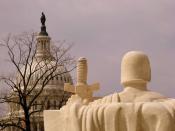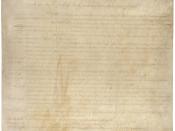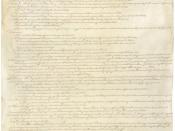Throughout the history of America, from the time of it's ratification, until today, The Constitution of the United States of America has ensured Americans the freedom to speak their minds and express their opinions. The American Court System; however, has ruled that in certain situations freedom of speech and expression can be limited. A direct contradiction to the Constitution.
Congress shall make no law respecting an establishment of religion, or prohibiting the free exercise thereof; or abridging the freedom of speech, or of the press; or the right of the people peaceably to assemble, and to petition the Government for a redress of grievances.
-The United States Constitution. 1st Amendment
The highlighted portion of the 1st Amendment above relative to free speech seems clear and unequivocal, but do the words really mean what they say? It is hard to tell. The American court system has decided upon many cases concerning freedom of speech.
The courts have protected this right, but they have also transgressed upon it. They do this even though the Constitution states clearly that
they may not. It is the Court's responsibility to see that this right is not to be infringed, but time will tell that they don't exactly follow the rules.
In 1798, seven years after the adoption of The Bill of Rights, the Congress passed and President John Adams signed The Sedition Acts criminalizing certain speech, a clear abridgment or taking away of some freedom of speech. One would expect the Supreme Court to invalidate any type of violation of the 1st Amendment, no matter the reasons as to why, but one would be wrong. The Supreme Court
invoked the common law doctrine of "no prior restraint1" to uphold prosecutions under the Sedition Act. (Peterson)
Later, during the Civil War, under the emergency conditions2, The...



Good Work!
This is an excellent paper and an excellent attempt at the topic. Your paper is fully supported and your opinion is inclusive. Well done! :)
5 out of 5 people found this comment useful.